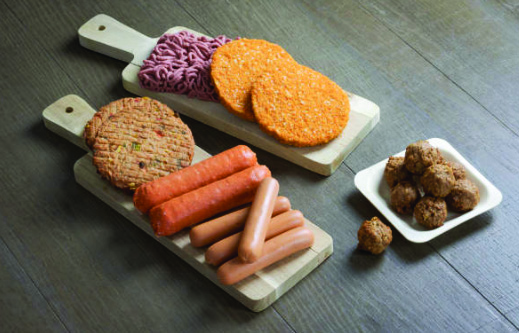ACCORDING to the Department of Agriculture, new regulations relating to meat substitutes for sale in South Africa were gazetted in July as a consequence of consultative meetings held with all affected stakeholders, including the red meat industry.
Meat analogue products, also known as meat substitutes, mock meat, faux meat, or imitation meat, were initially defined in the Processed Meat Regulations as a product that approximates the aesthetic qualities (primary texture, flavour and appearance) and/or chemical characteristics of a specific type of meat. These products are derived from non-meat ingredients, sometimes without dairy products and are available in different forms (coarse ground meat analogues, emulsified meat analogues and loose fill, for example.).
The department said names under which meat analogues may be sold are hot dogs, chipolatas, bites, steaks, pops, balls rounds, pieces, tenders, burgers, patties, sausages, bangers, griller loafs, polonies, mince, roasts, schnitzels and products named according to shapes, for example, frikkadel wheels, discs, nuggets, rolls and sizzlers. The use of these names shall be permitted with the use of names that describe the meat analogues and, if necessary, their use, and which are sufficiently clear to enable consumers to determine their true nature so that they are distinguishable from other products.
Under the new regulations, no indication of animal species names, animal morphology or anatomy cuts names as prescribed under the Agricultural Product Standards Act, are allowed to be part of the meat analogue product name. The words or expressions such as chicken-style, beef-style, chick’n, b*con, or any similar wording referring to animal species or meat products are not permitted to be used on the packaging of meat analogue products.
In terms of the compositional standards, inter alia, the meat analogue products are required to have a protein content of at least 9% if the words meat replacer or meat substitute or meat alternative or plant-based protein or plant protein, or any similar words, are indicated on the main panel.
The department said its inspectors will be responsible for the application or enforcement thereof until advised otherwise, considering that there is currently no designated assignee. The Food Safety Agency, on the other hand, will be responsible for enforcing relevant prescribed regulations, in addition to processed meat and certain raw processed meat regulations to the extent that prescribed names are used in the sale of meat analogue products. Furthermore, the Border Management Authority will be responsible for the application and enforcement of the regulations on imported meat analogue products, according to the Department of Agriculture.
The department said the publication of meat analogue regulations provides the necessary clarity required for the trade of meat analogues and meat products, and consumers will enjoy the protection from the sale of misleading products. Furthermore, the publication of the Meat Analogue Products Regulations will foster confidence in the sale of meat analogues and meat products in South Africa.








